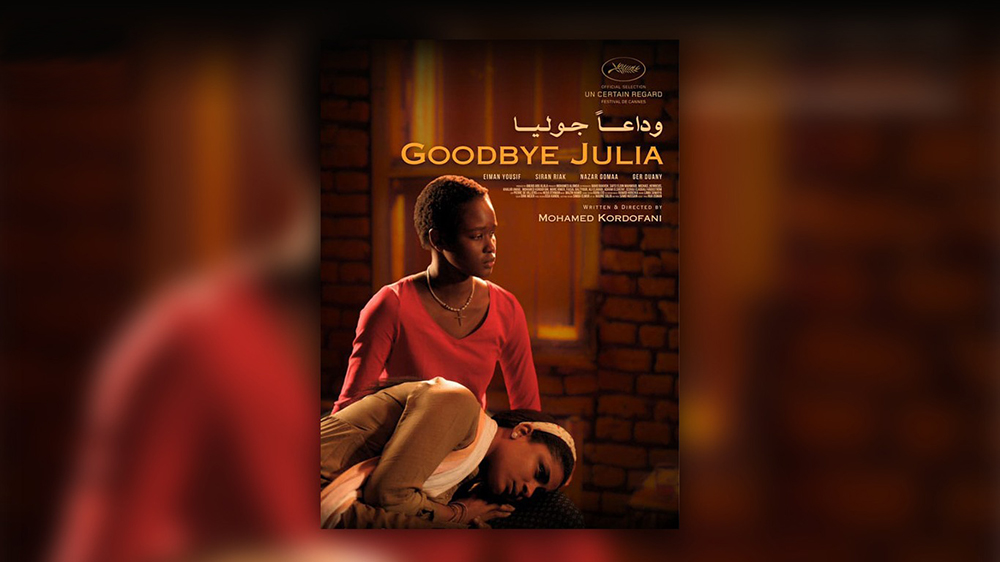
``Goodbye Julia``: Cinema Defeats Hatred
Khaled Masa
While war cinema presents its tragic show on screens in the cities of Khartoum, Geneina, Nyala, Zalingei, and Al-Obeid for approximately seven months, with advocates for its continuation occupying front seats in these theaters, hoping that the film "April War" would compete for the Oscars in the category of destruction and violations against films currently being shown in "Gaza" and others, the soft power of Sudan had a different opinion. It lit a candle at the end of the tunnel of the Sudanese crisis by presenting a unique Sudanese production, representing the essence of authentic cinematic art.
Sudanese people, except for those confined by the war within the affected states or those occupied with the daily struggle of the horrors of displacement, had the opportunity to watch the movie "Goodbye Julia," which secured its place among the film schedules in Cairo. We can assert that they watched the show with feelings of "survivors" of the war, those scorched by the fire of refuge, and those mourning a homeland torn apart by war and its people divided by its calamities.
I read in the reactions of the Sudanese who watched the showings of the film "Goodbye Julia," by the amazing writer and director Mohammed Kordofani and produced by the creative Amjad Abu Alala, their pride in the rise of Sudanese production to compete for international awards such as the Cannes Festival. At the same time, they felt that the displayed content speaks to their national soul. The scenes address stories they lived or their relatives are currently experiencing, and the bitter salt on the cheeks due to a loved one who died, or homes whose sanctity was violated, or even memories erased by bullets.
"Goodbye Julia," beyond the "simplification" templates that dark forces try to impose on art to serve and nurture all the negative energies in the Sudanese collective psyche, opened the door for Sudanese art to be an authentic partner in the processes of raising awareness and enlightenment. It chose important issues, such as racism and hatred, to be brilliantly addressed by the writer, director, producer, and the acting team in this movie, turning cinema into a lineup of awareness and enlightenment against all war outcomes.
The "awakening" witnessed by the Sudanese cinematic production in recent years, led by a young and conscious generation aware of the issues of their country and people, and the echoing of Sudans name in regional and international gatherings and festivals and even competing for individual and collective awards, lacked only the return of Khartoum and other Sudanese cities to be qualified with cinemas instead of "militarizing" the city and turning it into operation theaters where civilians die and life ends.
"Goodbye Julia" is not just a cinematic show in air-conditioned theaters frequented by intellectuals and those disconnected from their country and peoples issues, but its a cry for "awareness" and "enlightenment" in a time of using cheap and unserved art to serve the industry of hatred.
The art presented through the movie "Goodbye Julia" is a voice saying "no to war," believing that art and cinema have an authentic role in building the consciousness of people and healing all the complex fractures created by wars. It is the effective weapon we use to face the "Tatars" of hatred and racism and those who dont believe in life as a high and precious value for humans.
The movie "Goodbye Julia" is "clean" art cinema, free from regional and tribal mobilization and stereotyping that leads to harmful biases in society. It is a type of art that represents the natural immunity of society against the virus of hatred and racism and all the syndromes of war.
The "Oscar of Awareness" is the award that the Sudanese movie "Goodbye Julia" deserves, appreciating the writer, director, producer, acting team, and everyone who stood behind the production of this artistic work, and all the Sudanese who reserved their seats in theaters in encouragement and belief in the competence and ability of Sudanese cinema to address the Sudanese crisis through the "cinema platform" side by side with the political platforms.
"Goodbye Julia" is a timely cinematic show while the whole world is fixated on the worst displays of horror and destruction movies caused by wars. It mobilizes all art tools to form its resistance to the effects of war, affirming that the resisting act is nothing but a mixed act to form awareness in society that cinema can contribute significantly and effectively.
The "graffiti" of the revolution and the drawings of Sudanese artists who believe in change, which adorned the streets and walls of Khartoum, Atbara, Nyala, Madani, Port Sudan, Al-Damazin, and all the cities of the Sudanese revolution, as well as the voices of the singers, were not just a festive aspect accompanying the revolutionary act. Still, they were an embodiment of the values for which the martyrs offered their lives. The same streets and walls now stand witness to what the war has done, and the difference between the two scenes on the same stage is stark.
The effects of war and hatred are significant and influential on the Sudanese psyche. We, who have not recovered from its effects previously, faced the war of April, which added to our woes, and we have no choice but to use the Sudanese peoples capacity to the fullest to heal the wounds of war. There is no better antidote than conscious art capable of addressing the sound conscience with the art language that everyone understands.


